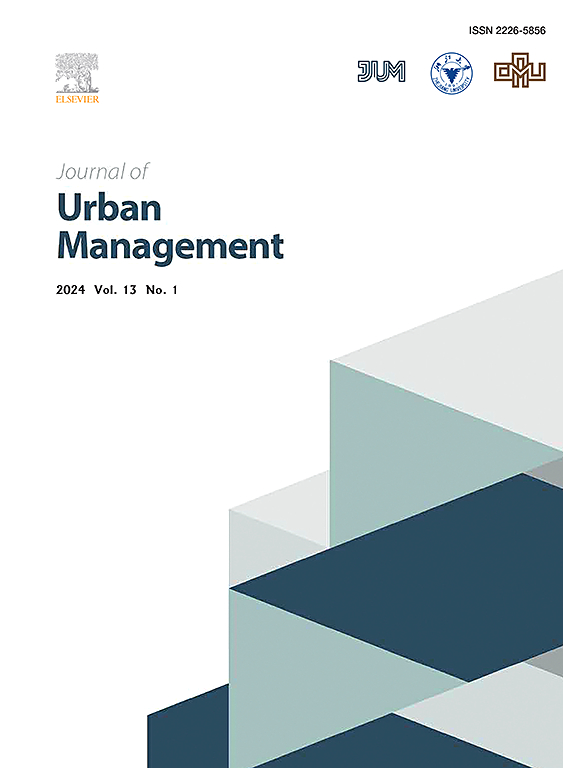Urban tech ecosystems: A framework for assessing the impact of development policies on startup clusters
IF 5
2区 社会学
Q1 URBAN STUDIES
引用次数: 0
Abstract
Startup clusters exert a significant influence on territorial dynamics and local urban development by attracting job opportunities, talent, and shaping market interest, supported by effective land use policies. This study examines the impact of Urban Development Policies (UDP) on technology startup clusters' sustainability, focused on the city of São Paulo, in Brazil. It recognizes a gap in understanding UDP's influence on cluster growth, which motivates the research. The study employs a four-phase method: technology mapping, territorial differentiation, metric configuration, and decentralized district aggregation, utilizing QGIS and Python. The results reveal a trend of cluster formation in UDP areas due to infrastructure, academic proximity, and commercial growth, highlighting the interplay between urban policies, infrastructure development, and economic opportunities. The findings provide insights to strategic urban development policies, emphasizing holistic strategies for employment enhancement, sustainable urban evolution, and effective talent and real estate management. These implications advance knowledge in urban issues, policy implementation, urban design, and urban services provision, pertinent to the global development context. Results show actionable solutions to address urban challenges, build innovative urban solutions and support local sustainable development with technology startup clusters.
城市科技生态系统:评估发展政策对创业集群影响的框架
在有效的土地利用政策的支持下,创业集群通过吸引就业机会、人才和塑造市场利益,对领土动态和当地城市发展产生重大影响。本研究考察了城市发展政策(UDP)对技术创业集群可持续性的影响,重点研究了巴西圣保罗市。它认识到在理解UDP对集群增长的影响方面存在差距,这激发了研究的动机。本研究采用QGIS和Python技术,采用技术制图、地域划分、度量配置和分散区域聚集四阶段方法。研究结果显示,由于基础设施、学术邻近和商业增长,UDP地区有集群形成的趋势,突出了城市政策、基础设施发展和经济机会之间的相互作用。研究结果为战略性城市发展政策提供了见解,强调了促进就业、可持续城市发展以及有效的人才和房地产管理的整体战略。这些影响促进了与全球发展背景相关的城市问题、政策实施、城市设计和城市服务提供方面的知识。结果显示了应对城市挑战的可行解决方案,构建创新的城市解决方案,并通过技术创业集群支持当地的可持续发展。
本文章由计算机程序翻译,如有差异,请以英文原文为准。
求助全文
约1分钟内获得全文
求助全文
来源期刊

Journal of Urban Management
URBAN STUDIES-
CiteScore
9.50
自引率
4.90%
发文量
45
审稿时长
65 days
期刊介绍:
Journal of Urban Management (JUM) is the Official Journal of Zhejiang University and the Chinese Association of Urban Management, an international, peer-reviewed open access journal covering planning, administering, regulating, and governing urban complexity.
JUM has its two-fold aims set to integrate the studies across fields in urban planning and management, as well as to provide a more holistic perspective on problem solving.
1) Explore innovative management skills for taming thorny problems that arise with global urbanization
2) Provide a platform to deal with urban affairs whose solutions must be looked at from an interdisciplinary perspective.
 求助内容:
求助内容: 应助结果提醒方式:
应助结果提醒方式:


